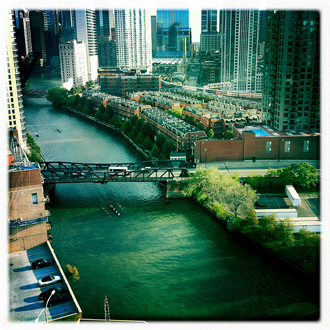From Here to the Gulf: MWRD's own documents point to their pollution problem
By JoshMogerman in News on Mar 6, 2011 8:00PM
New documents have emerged that show the damage caused by a sewage pollution stream in the Chicago River that extends all the way to the Gulf of Mexico. Did that information come from a brave whistleblower? Or a Wikileaks sleuthing of secret files? Nope. Turns out it comes from testimony by the authority itself and its allies aimed at proving that they had already trashed the River with pollution too thoroughly to make it worth saving.
The Chicago News Cooperative reports in today's New York Times that a new suit over pollution released from the Metropolitan Water Reclamation District’s combined sewer overflows and water treatment plants includes some evidence of their own making:
Key evidence includes the agency’s own records and a recent report by Richard Lanyon, the former head of the reclamation district. The report said the district’s water-treatment plants were a major source of nitrogen and phosphorus in the upper Des Plaines and Illinois Rivers, where they contribute to phosphorus levels that have been logged at more than 10 times the limit set by the United States Environmental Protection Agency.That did not sit right with the Natural Resources Defense Council, Sierra Club, or Prairie Rivers Network who have informed the District of their intent to sue to force a cleanup.Unlike the situation in many other major cities, the reclamation district’s treatment plants in Chicago do not remove most phosphorus from wastewater. A 2009 report by the United States Geological Survey found that the Chicago area contributes more nitrogen and phosphorus to the Gulf of Mexico’s dead zone than any other watershed.
The CNC notes that MWRD’s response has been to throw their hands in the air and say it is too expensive, despite the clear violation of the Clean Water Act. Those arguments might have held polluted water in the past, but it is clear that the public’s view of the Chicago River has changed. And as a bevy of other cash strapped towns in the region have been able to address their phosphorous pollution, we think it is time for the District to fix these nagging issues. Folks in the Gulf have enough to contend with already...as do many of the communities that the Chicago River runs through around here.
